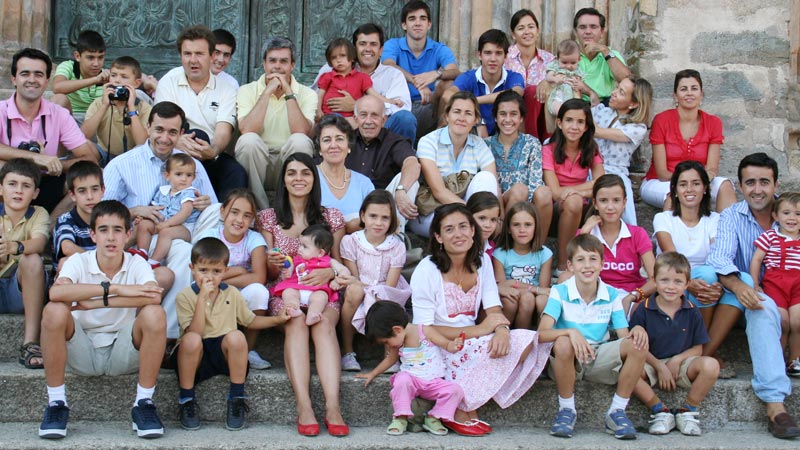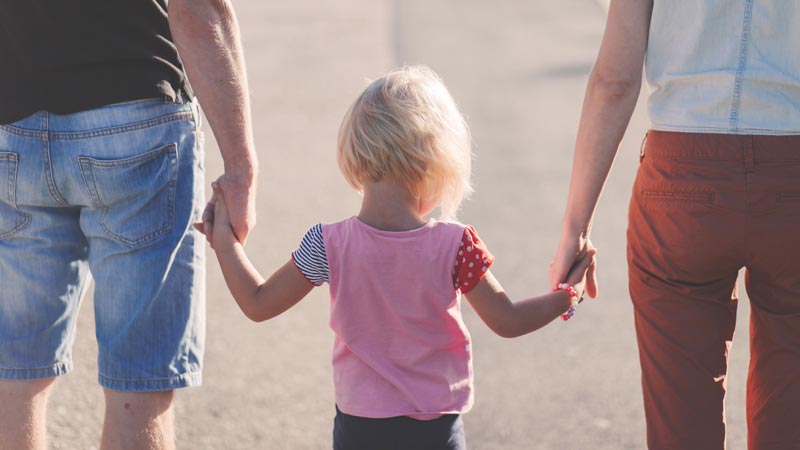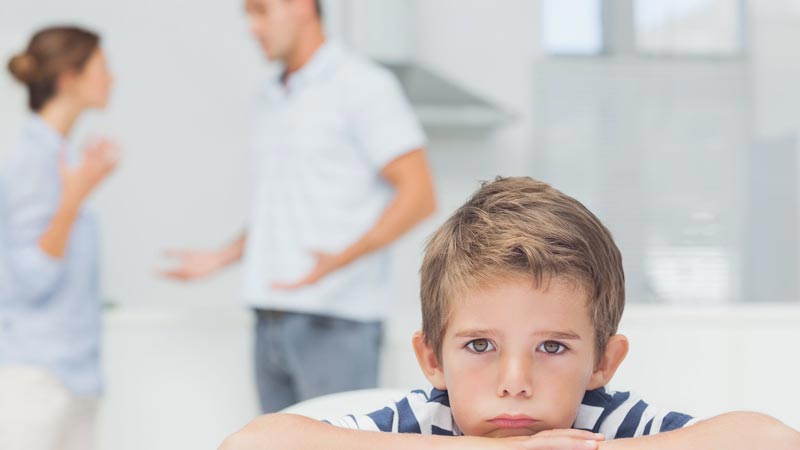The family as a pillar of society
Find out more about family life in Germany as the family is the centrepiece of society. The roots of the family can also be found in the Bible, and the family is specially protected by Germany’s laws.

Find out more about family life in Germany as the family is the centrepiece of society. The roots of the family can also be found in the Bible, and the family is specially protected by Germany’s laws.

Wherever people live together, there are families. In all countries and cultures the family is the most important pillar of society. Members of a family are there to help each other. Parents look after their children, siblings grow up together, and there are other relations like grandparents, uncles, aunts or cousins.

When people talk about the family in Germany, they usually mean the core family consisting of a father, mother and children. Even if there is a good relationship with grandparents, they don’t normally live in the same household. The strength of the relationships to other relations is dependent on the family in question. The trend to smaller and smaller families began in Germany in the 19th century with the onset of the industrial revolution. More and more families now live in small flats in towns and cities, being financially independent from their relatives.
In Germany the family is given particular protection, for example through Section 6 of the Basic Law. The particular status awarded to the family has its roots in the biblical view of marriage and the family. According to the Bible, marriage is a union between a man and a woman, and God himself “invented” marriage.
Besides the traditional view of family as a group composed of mother, father and children, ‘family’ is increasingly being defined in Germany as a cohabiting union in which various generations are responsible for one another, i.e. so-called patchwork families, single parents or same-sex couples who bring in children from previous relationships.
Many of these modern forms of cohabitation are not in line with what the Bible says about how people should live together. But even if we feel that certain forms of ‘family’ are unusual or not good, it is important to respect people with different convictions. That is a key aspect of the freedom democracy in Germany offers.

Even though most people in Germany long for a happy marriage and a family, it is by no means certain that this will always happen. Many marriages unfortunately fail and people live together without being married. You often hear Germans talking about “partners for a specific period in life”, i.e. temporary relationships. As a result of this lack of commitment, there are children who suffer from their parents’ divorce and single parents who find life hard too.
The family should be a place of comfort and security. But for this to happen, there must be mutual respect and regard for the needs of other family members. Where this is not the case, conflicts can emerge that endanger a family. If such conflicts become violent, those responsible will feel the weight of the law in Germany where violence between man and wife and within a family is forbidden and punishable by law. In some cases, friends or neighbours inform the authorities about such violence.

Most people in Germany live in a small family or single household. Many Germans dream of owning their own house. In rural areas it is not uncommon for several generations of the same family to live under one roof.
In many families both parents work. That is partly due to the fact that a higher joint income improves the standard of living. But in many cases families need that second income to make ends meet. In Germany it is not only common but actually prescribed by law that a man has to help out in the household, e.g in washing the dishes, vacuum-cleaning, taking out the waste or doing other jobs.
As most spouses in Germany have a very close and intimate relationship, they most want to talk to each other about all kinds of things. A spouse is more important than one’s own siblings or parents. This perspective on marriage is based on the Bible, in which it says that a man will leave his father and mother to become one with a woman and to create a new family that is not dependent on the respective parents. However, the latter should still be honoured and respected.
Life expectancy in Germany has risen in recent decades, i.e. people are getting older and older. The outcome is more and more elderly people needing care. Many children or other relatives take on the task of caring for parents at home. Other elderly people are looked after in old people’s homes.
This is an important alternative if no close relations exist or a person cannot be cared for at home. From a legal and biblical perspective, parents are responsible for their children and children for their parents. At different stages in life they take on responsibility for each other.

One important goal of parents in Germany is to bring up their children to be independent. Girls and boys are equally valuable in Germany. Parents look for the best possible educational opportunities for their children of either sex, and both girls and boys enjoy the same rights and opportunities.
Parents in Germany mostly treat their children with love and respect. In this country the physical or psychological punishment of children is forbidden by law.
Parents often support the school's teachings by committing time and energy to help their children with their homework, for example. And they allow their children to take part in activities offered by sports clubs, music societies or Christian churches. This is where children are not only supported in their development in specific fields; they also enjoy playing or doing other things with children of similar age and in this way expand their social skills. All the above-mentioned groups are glad to accept children from other countries, irrespective of their religious affiliations.